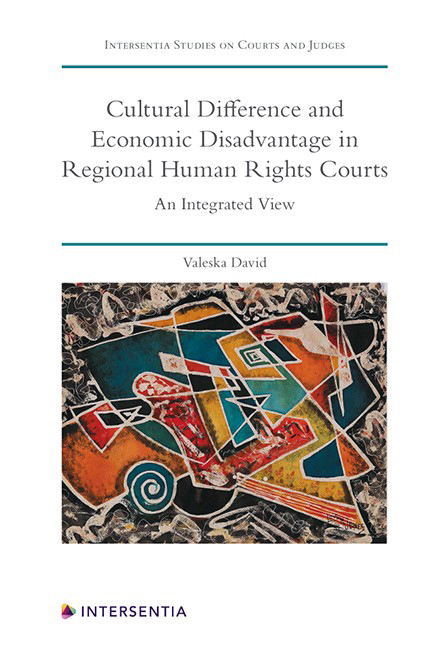Book contents
- Frontmatter
- Dedication
- Foreword
- Preface
- Acknowledgements
- Contents
- List of Cases
- Introduction
- PART I THEORETICAL FOUNDATIONS
- PART II RETHINKING CULTURAL DIFFERENCE FROM AN INTEGRATED PERSPECTIVE ON HUMAN RIGHTS
- PART III RETHINKING ECONOMIC DISADVANTAGE FROM AN INTEGRATED PERSPECTIVE ON HUMAN RIGHTS
- Conclusion
- Bibliography
- Index
- About the Author
Chapter 2 - An Integrated Approach to Cultural Difference in the European Court of Human Rights
Published online by Cambridge University Press: 21 July 2020
- Frontmatter
- Dedication
- Foreword
- Preface
- Acknowledgements
- Contents
- List of Cases
- Introduction
- PART I THEORETICAL FOUNDATIONS
- PART II RETHINKING CULTURAL DIFFERENCE FROM AN INTEGRATED PERSPECTIVE ON HUMAN RIGHTS
- PART III RETHINKING ECONOMIC DISADVANTAGE FROM AN INTEGRATED PERSPECTIVE ON HUMAN RIGHTS
- Conclusion
- Bibliography
- Index
- About the Author
Summary
INTRODUCTION
The European Court of Human Rights (ECtHR) has been confronted with an enormous volume of cases concerning questions of ethno-cultural diversity. The most direct avenues for advancing rights claims to recognition of cultural differences are Article 8 (right to respect for private and family life), Article 9 (freedom of thought, conscience and religion), Article 2 of Protocol No. 1 (right to education) and Article 10 (freedom of expression) of the European Convention on Human Rights (ECHR). From the existing case law in this area, this chapter focuses on complaints brought by Roma and Travellers as well as Muslim applicants. The former set of cases mainly relies on Article 8 ECHR, oft en accompanied by Articles 1 (right to property) and 2 (right to education) of Protocol No. 1. Muslim applicants, in turn, mainly invoke Article 9 ECHR, Article 2 Protocol 1 and Articles 10 and 11 ECHR. Both Roma/Travellers and Muslim applicants share the frequent invocation of the prohibition of discrimination (Article 14 ECHR).
Broadly speaking, in the cases studied Roma, Travellers and Muslims generally seek protection against discrimination; redress of disadvantages associated with their actual or perceived difference, and accommodation of cultural/religious aspects of their life. As will be seen below, these complaints are varied in scope and relate to different areas of social life, such as land planning and housing, education, the workplace, social protection, the use of public services and public spaces, political representation and participation in other spheres of power. As such, most of the cases reviewed not only concern the opportunity to live in accordance with one's cultural/religious identity. They also touch upon socio-economic and participation rights. In this context, and because this book is interested in what an integrated normative framework can offer to the adjudication of cases otherwise addressed through a relatively narrow approach, the present discussion will draw particular attention to those judgments and decisions where, despite the complexity and multidimensionality of the problems under review, emphasis is put on questions of ethno-cultural difference and competing group demands. In other words, this chapter will examine more closely the subset of rulings where the Court has adopted a normative approach mostly anchored in ethno-cultural and religious identity (i.e. being a ‘Roma’, being a ‘Muslim’), as this focus is quite representative of a compartmentalised frame of analysis.
- Type
- Chapter
- Information
- Cultural Difference and Economic Disadvantage in Regional Human Rights CourtsAn Integrated View, pp. 91 - 158Publisher: IntersentiaPrint publication year: 2020



